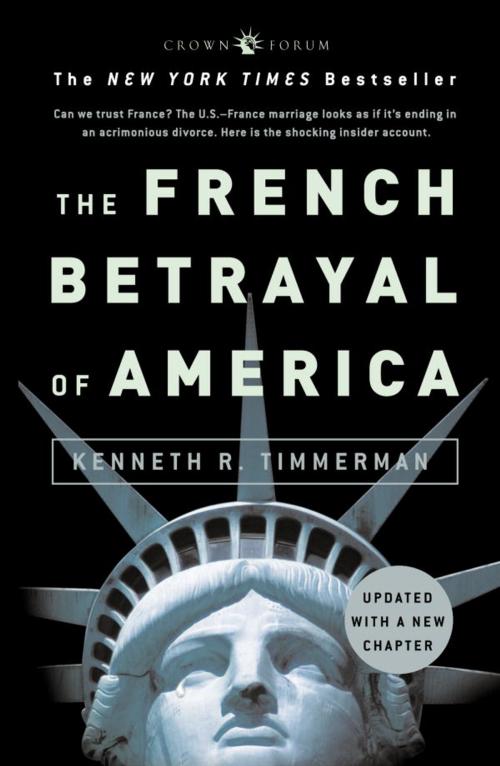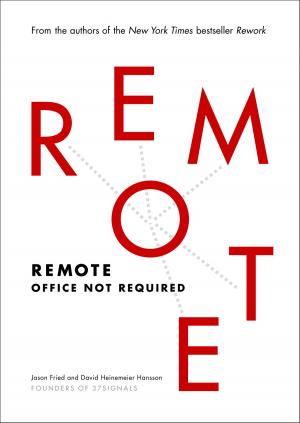The French Betrayal of America
Nonfiction, Social & Cultural Studies, Political Science, International, International Relations, History, Military, Americas, United States| Author: | Kenneth R. Timmerman | ISBN: | 9780307237781 |
| Publisher: | The Crown Publishing Group | Publication: | March 22, 2005 |
| Imprint: | Crown Forum | Language: | English |
| Author: | Kenneth R. Timmerman |
| ISBN: | 9780307237781 |
| Publisher: | The Crown Publishing Group |
| Publication: | March 22, 2005 |
| Imprint: | Crown Forum |
| Language: | English |
Can we trust France? Apparently not. After more than 200 years of shared history and interests, the U.S.-France marriage looks as if it's ending in an acrimonious divorce. Here is the shocking insider account.
In the wake of French behavior at the United Nations, where Foreign Minister Dominique de Villepin systematically undermined the efforts of Secretary of State Colin Powell to convince the Security Council to authorize force against Iraq, Americans have at best come to suspect our ally of double dealing, and at worst come to view them as the enemy. Almost daily over the past year, new stories have emerged of how the government of French President Jacques Chirac has sought to undermine the U.S. war on terror, publicly sniping at America and inciting other countries to do the same. What's wrong with France? What's behind their recent perfidy? According to bestselling author Kenneth R. Timmerman, the American public doesn't know half the story. After they read The French Betrayal of America, American anger at France will turn to outrage.
Timmerman, who worked as a journalist in France for eighteen years and knows the players on both sides, lifts the veil of Jacques Chirac's scandalous love affair with Saddam Hussein, beginning in 1975, when he took him on a tour of top-secret French nuclear facilities. The French attitude toward the dictator, which seemed to baffle American politicians, was in fact entirely predictable. Put bluntly, it was all about money, oil, and guns. Chirac needed Saddam's oil and Saddam's money, and Saddam needed French weapons and French nuclear technology.
Despite this, the relationship between France and America was not only amicable but at times very mutually beneficial. That was until the most recent war on Iraq, where France turned the tables, engaging in dirty diplomacy and helping to sway other European countries to their side. French war coverage was not merely one-sided: It was viciously inaccurate, skewed, and openly anti-American. Timmerman also presents incredible new evidence of France's duplicity, including the fact that the French stood to gain $100 billion from secret oil contracts they had concluded with Saddam Hussein.
The French Betrayal of America raises questions of whether the nuclear cooperation agreements still in force with the French today should be canceled in light of France's behavior. Our security interests no longer converge, and our economic systems increasingly appear to be at loggerheads. The war in Iraq harshly exposed French treachery and their desire to do business with the worst of international tyrants, putting their economy, their international standing, and their relationship with a 200-year-old friend in severe jeopardy.
Can we trust France? Apparently not. After more than 200 years of shared history and interests, the U.S.-France marriage looks as if it's ending in an acrimonious divorce. Here is the shocking insider account.
In the wake of French behavior at the United Nations, where Foreign Minister Dominique de Villepin systematically undermined the efforts of Secretary of State Colin Powell to convince the Security Council to authorize force against Iraq, Americans have at best come to suspect our ally of double dealing, and at worst come to view them as the enemy. Almost daily over the past year, new stories have emerged of how the government of French President Jacques Chirac has sought to undermine the U.S. war on terror, publicly sniping at America and inciting other countries to do the same. What's wrong with France? What's behind their recent perfidy? According to bestselling author Kenneth R. Timmerman, the American public doesn't know half the story. After they read The French Betrayal of America, American anger at France will turn to outrage.
Timmerman, who worked as a journalist in France for eighteen years and knows the players on both sides, lifts the veil of Jacques Chirac's scandalous love affair with Saddam Hussein, beginning in 1975, when he took him on a tour of top-secret French nuclear facilities. The French attitude toward the dictator, which seemed to baffle American politicians, was in fact entirely predictable. Put bluntly, it was all about money, oil, and guns. Chirac needed Saddam's oil and Saddam's money, and Saddam needed French weapons and French nuclear technology.
Despite this, the relationship between France and America was not only amicable but at times very mutually beneficial. That was until the most recent war on Iraq, where France turned the tables, engaging in dirty diplomacy and helping to sway other European countries to their side. French war coverage was not merely one-sided: It was viciously inaccurate, skewed, and openly anti-American. Timmerman also presents incredible new evidence of France's duplicity, including the fact that the French stood to gain $100 billion from secret oil contracts they had concluded with Saddam Hussein.
The French Betrayal of America raises questions of whether the nuclear cooperation agreements still in force with the French today should be canceled in light of France's behavior. Our security interests no longer converge, and our economic systems increasingly appear to be at loggerheads. The war in Iraq harshly exposed French treachery and their desire to do business with the worst of international tyrants, putting their economy, their international standing, and their relationship with a 200-year-old friend in severe jeopardy.















